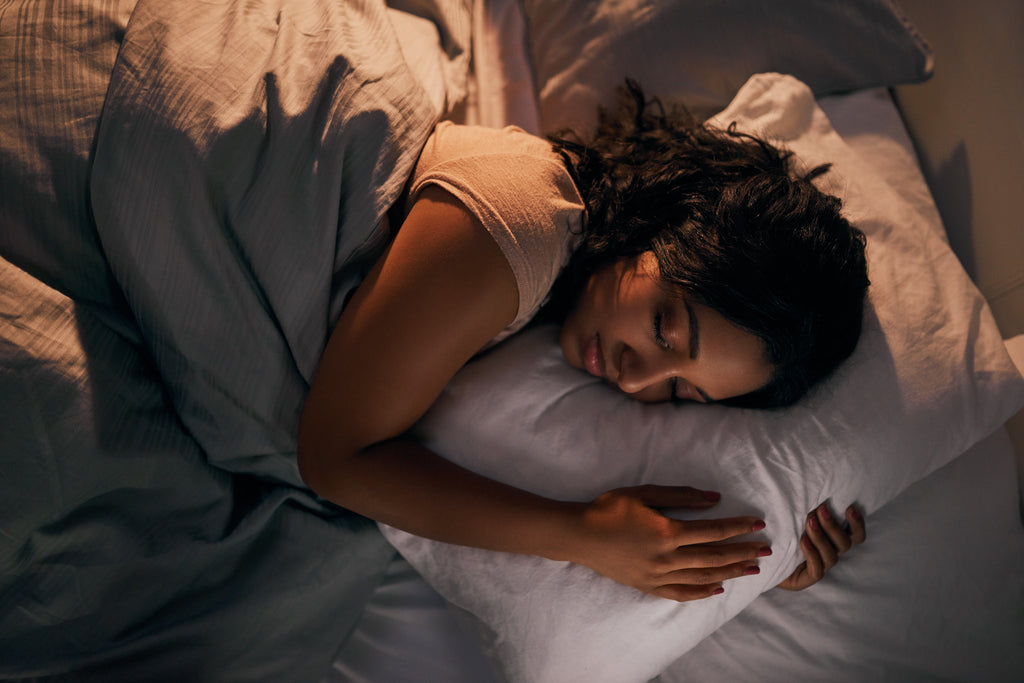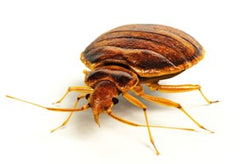- Home
- SHOP ▾
- Store Locator
- Media
- Product Information ▾
- Our Associations ▾
- Warranties ▾
- Advice ▾
- Blog

You probably ask yourself all the time what makes a good night’s sleep? If you google it, you’ll most likely see lists upon lists of top ten tips or the 5 best secrets to a good night’s sleep. Whilst these lists probably have great ideas, they may be redundant without understanding the key elements that make a good night’s sleep.
We’ve narrowed it down to three key elements for a good night’s sleep:
Now you know the three elements let’s expand on what they are so you have a basic understanding and can apply those great tips you see everywhere including our Instagram 😉.
1. Duration
Duration refers to the length of time that you sleep for, your sleep needs to be long enough that when you wake up the next day you are feeling refreshed and alert. Generally speaking, for an adult this is between 7-9 hours of sleep, with the length being longer for teenagers and young children.
|
Life Stage |
Required Sleep |
|
Older Adults |
7-8 hours |
|
Young Adults |
7-9 hours |
|
Teenagers |
8-10 hours |
|
School-aged children |
9-11 hours |
|
Preschoolers |
10-13 hours |
|
Toddlers |
11-14 hours |
|
Infants |
12-15 hours |
|
Newborns |
14-17 hours |
2. Continuity
Your sleep needs to be long and uninterrupted, even if you are still getting your required hours of sleep a night if you are waking up multiple times this can affect the overall quality of your sleep. There are four stages of sleep that humans go through each night:
As you can see our body slides through different and important stages of sleep each night and can do this multiple times, so if you are repeatedly waking up during the night you are disrupting your bodies sleep cycle.
3. Depth
This ties in with the stages of sleep we touched on above when talking about sleep continuity, you want your sleep to be deep and restorative. This means we especially want to make sure we are reaching the third and fourth stage of sleep known as slow wave sleep. Slow wave sleep is attributed to play a pivotal role in brain restoration and recovery as well as memory consolidation, whilst also producing human growth hormone which repairs tissues and cells in our bodies. All very important for us to be functional humans the next day.
Now you are equipped with the understanding of the key factors making up a good night’s sleep, you can now start creating a sleep routine that will aid you in sleeping the required amount and protecting it from interruption.

We all dream every night.
Dreams are a normal part of sleep. Most dreams occur and are the most vivid when we are in REM sleep. REM sleep generally first happens about 90 minutes after falling asleep and each REM stage can last up to an hour. The average adult having five to six REM cycles each night.
During the day when awake our thoughts, ideas and actions are based on logic. When we are asleep and dreaming the logical region of our brain shuts down and our dreams are driven by the emotional side of our brain, with about two thirds of our dreams occurring in pictures.
“During REM sleep many of our muscles relax completely and this prevents us acting out our dreams. If this system doesn’t work properly, we may try to act out our dreams, especially if the dreams involve strong emotions.” – Sleep Health Foundation
If you are in a positive mind set and have a good day, you are more likely to have a good dream. If you are depressed or anxious this may compromise your sleep quality and contribute to bad dreams.
Nightmares are vivid scary dreams. They tend to wake you up. They may often also stop you going back to sleep.
For children they are often thought of as part of growing up but they can also be set off by things such as a stressful event in life, trauma, medications, substance abuse or a mental or physical illness.
According to the Sleep Health Foundation of Australia
“10% to 50% of children have them. The number of adults who have nightmares is much less, from 2.5% to 10%”
If you are experiencing vivid scary dreams or nightmares regularly you may not be getting enough sleep at night or wake up feeling tired and stressed. If this is occurring regularly counselling may help.
Commonly it is thought that dreaming allows us to analyse and consolidate memories, skills and habits. Assisting us in our ability to respond to situations in our daily lives.
Other beliefs include dream’s acting as a creative muse, inspiring and facilitating our creativity. As a therapist, helping connect our feelings in such a way that we would not while awake. Or as a way of helping us deal with a threat or problem.
“One of the areas of the brain that’s most active during dreaming is the amygdala. The amygdala is the part of the brain associated with the survival instinct and the fight-or-flight response.” healthline.com
Although there is still a lot to be learnt about their cause and function, they are part of our regular sleep cycle which is vitally important for our everyday health and well being.
Sleep Well, Live Well

We all know that exercise, healthy eating and a good night’s sleep are key to our wellbeing, but did you know that what we eat can affect the quality of our sleep and how we have slept can affect what we want to eat.
Not getting enough sleep and feeling tired can make us more hungry
Yes, it is true. When tired we often want to eat more and often find ourselves reaching for energy rich but nutrient poor foods. A lack of sleep increases the release of the hormone Ghrelin which makes us feel hungry, whilst suppressing the release of the hormone Leptin that makes us feel full. Long term lack of sleep or tiredness is therefore linked to an increase in weight, which also increases the risk of snoring.
And what we eat and drink during the day can affect our ability to fall asleep
Our food and drink is made up of various nutrients which may influence our sleep patterns.
Eating certain foods can help you get in the mood for sleep whilst other can make you feel alert or wake you during the night.
Foods that contain Melatonin
Melatonin helps your body know when to wake up and go to sleep, with Melatonin levels generally starting to go up about 2 hours before sleep.
Foods high in Melatonin include:
Foods that contain Tryptophan
Tryptophan is an essential amino acid found in many foods which plays a role in creating Serotonin. Serotonin is a neurotransmitter that effects our mood and helps to regulate sleep and is converted into the sleep hormone melatonin.
Foods that contain Tryptophan include:
Many of these are protein rich foods, which on their own may not be enough. High protein meals can actually result in a drop of Serotonin because they contain not only Tryptophan but a number of other amino acids all of which are competing to make their way into the brain.
Eating a light carbohydrate can assist. Carbohydrates trigger the release of insulin which causes amino acids, but not Tryptophan to be absorbed into the body. Tryptophan remains in the bloodstream at high levels and can then enter the brain and cause Serotonin levels to rise.
Foods that contain Calcium
Dairy products that contain both Tryptophan and Calcium are also good sleep inducers
"Calcium helps the brain use the amino acid tryptophan to manufacture the sleep-inducing substance melatonin. This explains why dairy products, which contain both tryptophan and calcium, are one of the top sleep-inducing foods." – Medical News Today
Some good sources of Calcium which include Tryptophan are:
Foods that contain Vitamin B6
B6 also aids in the production of Serotonin and Melatonin. Deficiencies in the Vitamin B6 have been linked with lowered Serotonin levels, poor-quality sleep, insomnia and depression.
Vitamin B6 can be found in
Foods that contain Magnesium
A lack of magnesium has been linked to increased stress and anxiety levels and difficulty going and staying asleep.
Magnesium can be found in:
You may also consider a drink of Chamomile Tea
Chamomile tea is a well-known remedy for a good night’s sleep, helping calm the brain and body Chamomile Tea is rich in an antioxidant called apigenin.
And adding a teaspoon of raw honey Honey, restocks the liver with Glycogen which our brain users for energy. If glycogen is low the brain can wake us up telling us we need to eat. The natural sugars in honey also slightly raise insulin levels which help Tryptophan to enter the brain.
Milk
Many of us grew up with our parents telling us a warm glass of milk would help us sleep. Just this association may help you relax and prepare for a good night’s sleep. But there is also scientific evidence of the benefits of milk before bed. Milk is a natural source of the sleep inducing Tryptophan amino acid.
Caffeine
A naturally occurring stimulant, caffeine can be found in many food and drinks including coffee, tea and chocolate. While caffeine may give us a much needed wake-up or boost during the day, it can also affect our sleep and contribute to us feeling more tired the following day.
If you are drinking or consuming large amounts of caffeine consider cutting back. Just don’t stop suddenly, gradually cut back. If your body is used to caffeine as stimulant, simply stopping may give you headaches.
Try having that last one at different times to see what works best for you because as recognised by the Sleep Health Foundation
“There are different views on how many hours before bed you should have your last caffeine intake. Some say caffeine should be avoided for at least 3 to 7 hours before going to sleep. Others say no caffeine after lunch time if you have sleep problems. Many people find that their sleep improves with less caffeine or only having caffeine earlier in the day.”
Alcohol
Although Alcohol can make you feel tired and help you fall asleep faster it is disruptive to the amount and quality of your sleep. It may stop you from entering into the deeper and restorative stages of sleep and it is associated with one waking up more regularly in the night. It is best to avoid alcohol for at least 4 hours before bedtime.
Spicy Foods
Spicy foods are known to cause heartburn, indigestion and acid reflux, which may be made worse by lying down. The Sleep Council UK also recognize that research has found that spicy foods
“brought about a change in body temperature which can confuse the brain, as core temperature naturally dips as bedtime approaches.”
Foods High in fat
Fatty foods have been linked to poor fragmented sleep patterns and can also trigger acid production in the stomach leading to heartburn and indigestion.
Foods that have a high water content and are natural diuretics.
Natural diuretics elevate the rate and need for urination and you don’t want to be woken in the night needing to go to the bathroom. Foods that are natural diuretics include watermelon, celery and cucumber.
Large or protein heavy meals before bedtime
Avoid eating a large meal, or a meal heavy in protein, too close to bedtime and allow at least 2-3 hours between your last main meal of the day and bedtime. A small snack is ok. Going to bed with a full tummy will cause your body to focus on digesting rather than sleeping.
Remember that along with regular exercise a healthy balanced diet will help improve your sleep and energy levels.
Note: The lists above are not exhaustive and if regularly having trouble sleeping you should consult your doctor.
Sleep Well, Live Well

A shift worker is anyone who follows a work schedule that is outside of the typical 9 to 5 business day. This might include working rotating, split or irregular shifts and include morning, afternoon, evening or night work.
Allowing employers to make full use of the 24 hours in each day and ensuring essential services, including emergency services and healthcare are available at all times.
According to the Sleep Health Foundation of Australia
“The average shift worker sleeps one hour a day less than someone who doesn't work shifts.”
Just like when travelling overseas, and adjusting to a new time zone, it is not easy to switch to working and sleeping different hours of the day.
As daylight suppresses the release of Melatonin, a hormone which plays an important role in telling us when to go to sleep and wake up, shift work in the evenings or at night works directly against our body’s natural biological clock or circadian rhythm.
As a shift worker if you are not getting enough sleep you may find that you are lacking in energy, become irritable easily, have trouble concentrating or completing tasks efficiently. You may also find yourself nodding of and wanting to nap.
Lack of sleep can therefore reduce your ability to effectively do your job and also increase the danger of accidents at work.
By getting enough sleep you will feel better, be more productive and reduce the likelihood of errors or accidents.
Sleep Well, Live Well

If we have had a bad night’s sleep it can be hard to concentrate, our reaction time may be delayed, we may struggle to learn new things or recall our memories and not make sensible decisions.
After a good night’s sleep we feel energised, our brain is alert and we are able to clearly focus, learn, be creative and remember information.
Research shows that sleep plays an important role in learning and the formation of memories.
According to a resource from the Division of Sleep Medicine at Harvard Medical School
“Research suggests that sleep helps learning and memory in two distinct ways. First, a sleep-deprived person cannot focus attention optimally and therefore cannot learn efficiently. Second, sleep itself has a role in the consolidation of memory, which is essential for learning new information.
Although the exact mechanisms are not known, learning and memory are often described in terms of three functions. Acquisition refers to the introduction of new information into the brain. Consolidation represents the processes by which a memory becomes stable. Recall refers to the ability to access the information (whether consciously or unconsciously) after it has been stored.”
While we are sleeping different stages of our sleep play a role in forming different types of memories and consolidating what we have learnt during the day Research indicating procedural memory, or remembering how to do things such as riding a bike is affected by REM Sleep.
Ensuring you get enough sleep is therefore important to our ability to learn, remember how to do things and make good decisions.
On average, an adult should get between 7-9 hours of sleep a night.
If you are not sure how much sleep you or a member of your family should be getting based on age the Sleep Health Foundations article how much sleep do you really need gives a good guide.
Sleep well, live well

In order to protect our health, and the health of our families, friends, co-workers and neighbours the current coronavirus (COVID-19) outbreak is making many of us review our current hygiene and sleep habits.
The best way to keep your immune system strong is by living a healthy lifestyle. Having a diet high in fruits and vegetables, exercising regularly and getting adequate sleep, as all of these things contribute to keeping your immune system in check.
Some key things to help protect yourself from illness as suggested by healthcare experts include:
Minimise direct contact with potentially germy surfaces. Follow the government’s advice on how to help protect your well-being and the well-being of others. Abide by social distancing recommendations and wash your hands regularly with soap and water for at least 20 seconds. More information can be found at healthdirect.gov.au
Exercise is a proven way of reducing stress, all it takes is as little as 5-10 minutes a day to reduce stress, boost mood, keep the body strong, improve alertness during the day and sleep quality.
Sleep is incredibly important for your immune system. Research shows that people who do not get enough sleep can have a suppressed immunity, meaning that there is a higher risk of them getting sick.
“Sleep is now well understood to benefit immunity,” says Dr Moira Junge, spokesperson for Australia’s leading sleep advocate Sleep Health Foundation. “An early night may be just what you need to boost your mood and immunity and help protect yourself from illness.” - Sleep Health Foundation, Australia -
When you sleep, your immune system releases a compound called cytokines. Cytokines are proteins produced by cells, some cytokines interact with cells of the immune system in order to regulate the body’s response to infection.
In times like these where there is concerning news and a lot of uncertainty it can be quite stressful for everyone. Stress can have a big impact on your sleep, it can make falling asleep a real struggle and once you finally get to sleep it can often be troubled with a lot of restlessness.
If you are having trouble sleeping , ensure you are getting some exercise during the day and try setting aside some time each night to write down or talk about what is concerning you and what you need to do the next day so you don’t lie awake “worrying”.
Importantly make sure, as an adult, you are getting the recommended 8 hours per night sleep. This is of high significance as it allows your body to rest and repair itself.
Ensure a healthy sleep environment
We spend approximately one third of our lives in bed and although we don’t like to think about it when we are sleeping we are sweating, losing skin flakes, drooling, and coughing. Things that in an unprotected bed can seep into our mattresses and pillows, providing food for dust mites and resulting in the growth of mould and bacteria.
Protect-A-Bed® Mattress, Pillow and Quilt Protectors, which can easily be removed for regular machine washing and drying, have a Miracle Layer™ that while breathable for a comfortable night's sleep also creates a barrier to stop our sweat, skin flakes and germs entering our pillows, mattresses and quilts.
Protect-A-Bed®’s Cumulus Mattress and Pillow Protectors are also treated with a naturally derived antimicrobial called Fresche®, that kills 99.99% of bacteria. Effective for up to 100 washes, it is environmentally friendly and contains no poisons or toxic chemicals.
All Protect-A-Bed® Mattress and Pillow Protectors are recognised by the National Asthma Council of Australia’s Sensitive Choice Program meaning that they provide protection against dust mites a common cause of trigger of asthma, eczema and allergies. As the new coronavirus (COVID-19) spreads, it’s important for people with asthma to maintain good asthma control and follow the advice from health authorities. For more information Sensitive Choice.
Moving forward in these times of uncertainty and a major health risk to us all it is important that you look after yourself. Minimise your contact with potential germs where possible, exercise daily and sleep well.

Every year billions of people are travelling and each trip they take the risk of bringing home a bed bug infestation.
Bed bugs love to hitchhike on luggage.
Found worldwide and an increasing problem in Australia and New Zealand, be sure to know what to look for these holidays or whenever travelling to ensure you and your family are protected from their nasty bites.
 Small in size, they are attracted to warmth, and are most active at night biting areas of exposed skin while sleeping. Their bite causing an allergic reaction which is displayed on the skin as itchy red welts usually not felt until some minutes or hours after the bite.
Small in size, they are attracted to warmth, and are most active at night biting areas of exposed skin while sleeping. Their bite causing an allergic reaction which is displayed on the skin as itchy red welts usually not felt until some minutes or hours after the bite.
Bed bugs have small, flat oval bodies. Adults are brown in colour, reddening after feeding. Despite common misconceptions that they are too small to see, fully grown they are about 4-5mm in length, small but visible to the naked eye.
Hiding in nooks and crannies they are primarily nocturnal, emerging in the middle of the night to feed on those sleeping. It is therefore, often not the bed bugs, but tell-tale signs of their infestation that may be seen first. Little brown or black dots found on linens or the mattress itself.
When booking a hotel room, you can:
If you have discovered bed bugs or evidence that would lead you to suspect their presence, alert the hotel staff immediately, do not stay in that room, and strongly consider finding a new hotel all together.
There have been reported cases of Bed Bugs in transit. After all they love to hitchhike on luggage and clothing. Having a hard shell suitcase can assist in eliminating the areas in which a bed bug can hide and it can easily be cleaned with an alcohol wipe after your flight. If you do see any signs of bed bugs while travelling let the flight attendant on your plane or tour guide know as soon as possible.
When you get home wash all clothes you took on the trip in hot water including the ones that might be clean or you have worn on the way home. Vacuum and check your luggage for any signs of bed bugs and then store them safely away from your bed.
Use Protect-A-Bed® Allerzip Mattress Encasement's on your beds for Fit ‘n’ Forget protection.
Not only providing peace of mind against bed bugs and dust mite allergens they help protect your mattress investment from everyday spills and stains.
The Protect-A-Bed® BugLock® system has a dust-proof flap and tamper-proof SecureSeal® making the mattress or pillow bed bug entry and escape proof, whilst also ensuring allergens can’t become airborne. Simply Fit'n'Forget® by laying a Protect-A-Bed® fitted mattress protector on the top for easy removal and regular washing with other bedding.
Sleep Well, Live Well